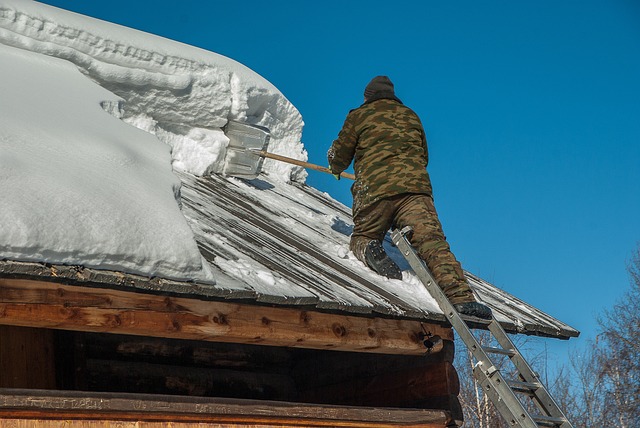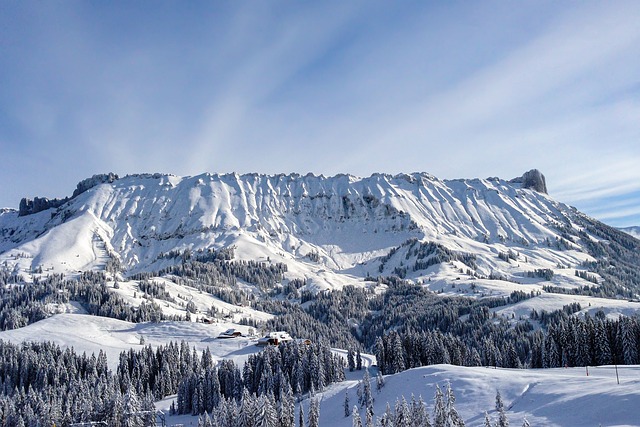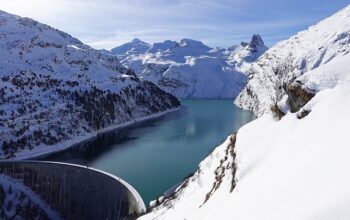A comprehensive guide emphasizes the importance of professional commercial snow removal services for ensuring safe and accessible commercial properties during winter. Specialized companies go beyond basic commercial snow plowing, offering tailored strategies, equipment, and safety protocols to mitigate risks and maintain property integrity. Prioritizing worker safety with appropriate PPE, training, and clear communication is paramount. Efficient operations involve strategic planning, regular equipment maintenance, and advanced sensors for hazard detection. Compliance with regulations and insurance are essential for risk management during commercial snow removal processes, ensuring swift and secure clearing without compromising safety.
Ensuring safe sidewalks is paramount for any commercial snow removal service. With significant responsibilities come stringent safety protocols, especially during commercial snow plowing. This guide delves into the essentials, from understanding legal obligations of commercial snow removal companies to equipping teams with vital safety gear. We explore best practices for efficient and safe commercial snowplowing, navigating hazardous conditions, and regulatory compliance, ensuring both effective service delivery and employee protection.
- Understanding the Responsibilities of a Commercial Snow Removal Service
- Essential Safety Gear for Commercial Snow Removal Teams
- Best Practices for Efficient and Safe Commercial Snow Plowing
- Navigating Hazardous Conditions: Safety Protocols for Commercial Crews
- Regulatory Compliance and Insurance Requirements for Commercial Snow Removal Companies
Understanding the Responsibilities of a Commercial Snow Removal Service

When it comes to keeping commercial properties safe and accessible during winter storms, a reliable commercial snow removal service plays a pivotal role. These specialized commercial snow removal companies are entrusted with ensuring clear and safe sidewalks, entryways, and parking lots for businesses, malls, office buildings, and other commercial spaces. The responsibilities of such services go beyond simple commercial snow plowing. They include identifying and mitigating potential hazards, employing safe removal techniques, and adhering to local regulations to prevent injuries and property damage.
Effective risk management is at the core of their operations. This involves assessing the unique challenges posed by each property, including its layout, traffic patterns, and accessibility requirements. A responsible commercial snow removal company will employ strategic plowing methods, utilize appropriate equipment, and carefully manage de-icing chemicals to create a safe environment for patrons and staff. Understanding these responsibilities is crucial for businesses looking to maintain a positive reputation, comply with regulations, and ensure the well-being of their visitors and employees during winter months.
Essential Safety Gear for Commercial Snow Removal Teams

When it comes to commercial snow removal services and companies offering commercial snow plowing, ensuring the safety of workers is paramount. Proper gear is an indispensable component of any professional snow removal team’s arsenal. Essential safety gear includes high-visibility vest, durable work gloves, and sturdy, waterproof boots designed for cold-weather conditions. These items not only protect against extreme temperatures but also safeguard against potential hazards like slipping on icy surfaces or encountering sharp objects beneath the snow.
Furthermore, a well-equipped team should incorporate safety helmets, facial protection, and reflective clothing to mitigate risks during commercial snow removal operations. Such gear plays a vital role in preventing head injuries, eye damage, and visibility issues, which are common challenges during brisk winter months. By prioritizing these safety measures, commercial snow removal companies can foster a secure work environment and minimize the risk of accidents, ultimately enhancing their efficiency and reputation in managing snowy sidewalks.
Best Practices for Efficient and Safe Commercial Snow Plowing

When it comes to efficient and safe commercial snow removal, a well-planned strategy is key. Commercial snow removal companies should prioritize thorough preparation before the first snowfall. This includes investing in high-quality, specialized equipment designed for commercial snow plowing, ensuring regular maintenance to guarantee optimal performance, and training staff extensively on safety protocols specific to this demanding task.
Effective communication is also vital. Companies should establish clear routes and schedules, notifying both clients and employees to avoid traffic congestion and potential hazards. During operations, consistent monitoring of weather conditions and proactive measures like frequent plowing intervals can prevent ice buildup, making it easier to clear sidewalks quickly and safely.
Navigating Hazardous Conditions: Safety Protocols for Commercial Crews

Navigating Hazardous Conditions requires a meticulous approach from commercial snow removal crews. Beyond the physical challenge of heavy snow and ice, safety must be paramount to prevent accidents and injuries. Crews should be trained in recognizing potential hazards such as buried utility lines, uneven terrain, and icy road surfaces. Specialized equipment with advanced sensors can aid in these conditions, ensuring efficient clearing while minimizing risks.
Commercial snow removal companies must prioritize worker safety by providing adequate personal protective equipment (PPE), regular safety training, and clear communication protocols. Maintaining a safe work environment extends to managing traffic flow during operations, utilizing reflective gear, and following local regulations to ensure the well-being of both workers and the public. Effective planning and adherence to safety protocols are key differentiators for any reputable commercial snow removal service or company, ensuring swift clearing without compromising safety during winter storms.
Regulatory Compliance and Insurance Requirements for Commercial Snow Removal Companies

Commercial snow removal services and companies must adhere to strict regulatory compliance standards set by local, state, or national authorities. These regulations cover various aspects, including equipment safety, employee training, and environmental impact. For instance, many regions mandate that commercial snow plowing operations use specialized machinery equipped with anti-skid devices and blades designed for efficient clearing without damaging sidewalks or causing accidents.
Insurance requirements are another critical aspect. Commercial snow removal companies should carry comprehensive liability insurance to protect against potential risks and damages associated with their operations. This includes coverage for property damage, personal injuries, and worker’s compensation. Adequate insurance ensures that both the company and its clients are safeguarded in case of accidents or unforeseen events during commercial snow removal services, such as plowing.




